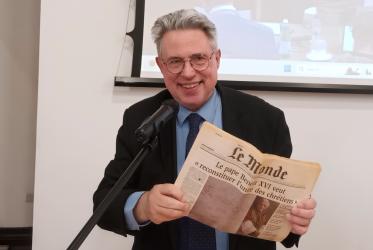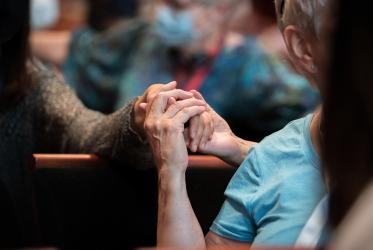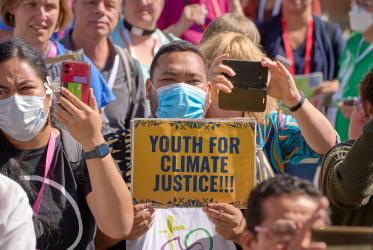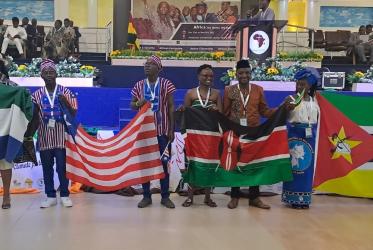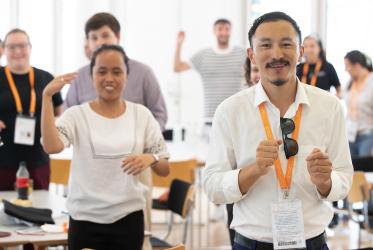Displaying 1 - 20 of 71
Is health the same for all?
17 April 2024
WCC, WHO commemorate 50 years of collaboration
04 April 2024
WCC webinar explores decolonizing beauty
11 December 2023
Young Black Europeans: “common witness has an open ear”
30 November 2023
Ecumenical International Youth Day 2023 Toolkit
Young People and Their Voices from the Warzones
26 July 2023
Pandemic and pedagogy: what are the valuable lessons?
21 December 2022
Christ’s Love (Re)moves Borders – GETI 2022 in images
13 September 2022
Reflections from GETI underscore friendship coupled with knowledge
13 September 2022










